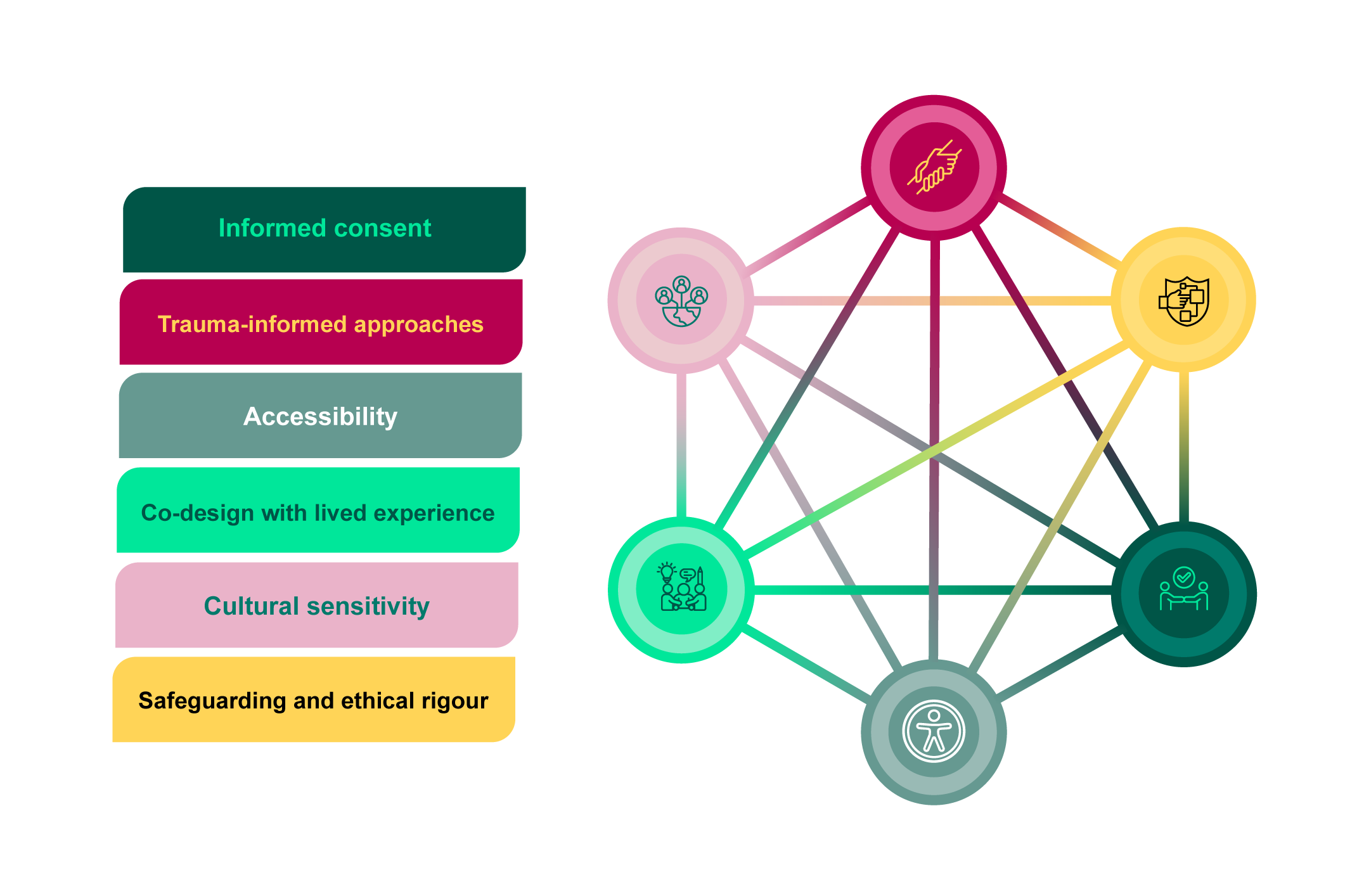
Some people, whether adults or children, frequently face a number of complex challenges. This not only impacts day-to-day living, but also creates obstacles to becoming part of the conversations in policymaking, service design, and public discourse. Yet, their experiences are equally as vital to understanding what works, what doesn’t, and what needs to change. When undertaken ethically and carefully, research can be a powerful way to make sure these voices are heard.
By creating safe, respectful, and inclusive spaces for participation, we can:
- Improve the quality and relevance of research
- Empower individuals and communities
- Inform better policy and service design
- Help ensure that no one is left behind in important conversations concerning their priorities or needs.
In the first part of a mini-series exploring how we approach sensitive, ethical research with groups with complex needs, we discuss the six core principles that guide our work. We explain why they matter, how they’re linked, how they shape our research and why we share our findings with participants.
Our six principles
To make sure we conduct our research in an ethical way, we draw on six key principles that inform our thinking and can be integrated into our approach:

1. Informed consent
This ensures participants understand what the research involves, what their rights are, and how their data will be used, so they can make a free and informed choice to take part.
2. Trauma-informed approaches
We recognise that some participants may have experienced trauma. Our researchers are trained to be sensitive, avoid re-traumatisation, and prioritise emotional safety.
3. Accessibility
We adapt our methods to meet people where they are, whether that means using plain language, offering different formats, or working with interpreters and advocates.
4. Co-design and co-production with lived experience
Where possible, we involve people with lived experience in shaping the research to ensure relevance and to create better outcomes and outputs.
5. Cultural sensitivity
We are mindful of cultural norms, values, and identities, and we strive to avoid assumptions or biases in how we engage and interpret.
6. Safeguarding and ethical rigour
We take our duty of care seriously. This includes:
- Confidentiality and anonymity — protecting participants’ identities and data.
- Minimising harm — being alert to distress, offering or directing people to support services, and knowing when to step back.
All principles will inform each other in some capacity. For example:
- Co-designing a research project naturally demands attention to accessibility and cultural nuance. Participatory methods aren’t one-size-fits-all — they’re shaped by the cultural contexts of those involved and their different accessibility needs. To be truly inclusive, co-design must consider how different communities engage, communicate, and collaborate.
- Informed consent needs to be trauma-informed to be genuinely meaningful. If participants don’t feel safe or supported from the start, they can’t make a free and informed choice — which undermines the very principle of consent. Trauma-informed approaches are also heavily underpinned by safeguarding and ethical rigour throughout each stage of a project, ensuring participants know they can withdraw, access support, and retain control throughout the process.

Sharing our findings
While sharing findings with participants doesn’t technically fall under one of our principles—since they’re focused on research design—we do believe it’s an important part of respectful and transparent practice once the research is complete, and we aim to do so whenever it’s appropriate.
Sharing personal, sensitive, or difficult experiences offers deeply valuable insight that’s often difficult to capture. It’s a way of honouring their contributions beyond the guarantees of data protection or thanking them for their time. Showing participants the outcomes and impact of their involvement allows them to see how they’ve been part of the bigger picture; helping to shape policy, services, or public understanding of an issue.
What’s next?
In the next blog, we’ll take a deeper dive into safeguarding and ethical rigour, looking at what it really means in practice, and examples of how we’ve navigated challenges in different contexts.